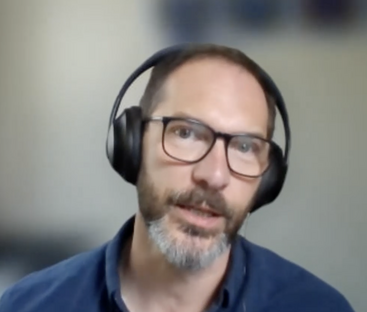NZ introduced half price fares last April as a measure to get more people back onto public transport after Covid. But as well as failing to have the desired affect, the government now fears a backlash when fares return to normal next year.

It’s unclear whether cutting fares has increased the post-covid return to public transport, and providing better services might be more successful in getting people back on trains and buses, a public transport forum heard.
Richard Harrison, Auckland Transport’s Metro Optimisation manager, discussed New Zealand’s experiment with public transport fare discounting at a webinar hosted by PTAANZ this week.
The NZ government introduced half-price public transport fares in April 1 and on Wednesday announced this would be extended from the original end date in January until March 2023.
“The headline is public transport is not as price elastic as we might like it to be,” Mr Harrison said.
The headline is public transport is not as price elastic as we might like it to be.
Richard Harrison
“Our experience with the half price fares is that it hasn’t necessarily been terrifically bringing people back, so I’d say providing more services is more important.
“Our customers keep telling us that they want services to be where they are, and take them where they want to go and they want it to be reliable. The fare’s the fare, it’s just a part of public transport.”
‘Return to public transport stagnating’
Mr Harrison said while patronage was higher than when the offer started, things had been on that trajectory anyway as offices, universities and schools reopened.
“In Auckland we were close to 40 per cent the 2019 level when the offer kicked in. We’re now sitting consistently between 65 and 70 per cent,” he said.
“What we’re seeing is in the last 12 weeks we’ve been static about 65-70 per cent return level.
“Other cities similar pictures, Christchurch and wellington over 80 per cent return but again they’ve come up and then stagnated at that level.”
He said the concern now was that patronage would suffer a setback when normal pricing begins.
“Our fear now is that it’s been so long that it’ll be seen that we’re doubling fares when the offer ends and that may damage our patronage,” he said.
The decision to extend half price fares came after a recent poll by TVNZ found more than 79 per cent of respondents said they believed half-price public transport fares should be made permanent.
Mr Harrison said AT would continue to consider price incentives and levers, and will be closely watching what happens in Christchurch, which will introduce a $NZ2 flat fare across the city.
Victoria to introduce price caps
Victoria will also offer a test case in using fare incentives to get people back on public transport with regional fares set to be capped a $9.20 a day from March 31.

However Deputy Secretary of Policy, Precincts and Innovation with the Victorian Department of Transport Natalie Reiter acknowledged the system could struggle if the caps resulted in significantly increased patronage.
“I’m not sure we could cope with the demand if it was enormously elastic … and the reduction in fares is going to precipitate an increase in demand for services,” she said.
Mr Reiter said with the shift to remote working, flattened peak times and and changing patterns of usage, Victoria is attempting to transform public transport into a ‘leisure’ rather than a commuter network.
She said a leisure-based model could mean a pivot towards more on-demand services, which will provide its own set of challenges.
“People seem to be travelling for leisure, there’s a big swing to weekends and Friday nights,” she said.
“In Victoria we’re trying to move towards turn up and go services … we do see that as one of the big opportunities for increasing people’s confidence in using public transport.”





Leave a Reply